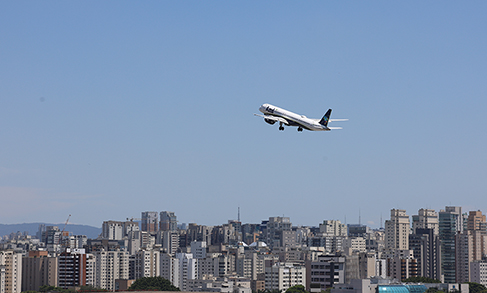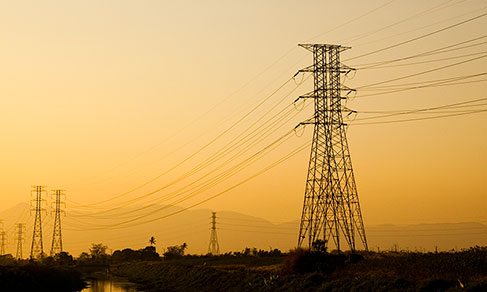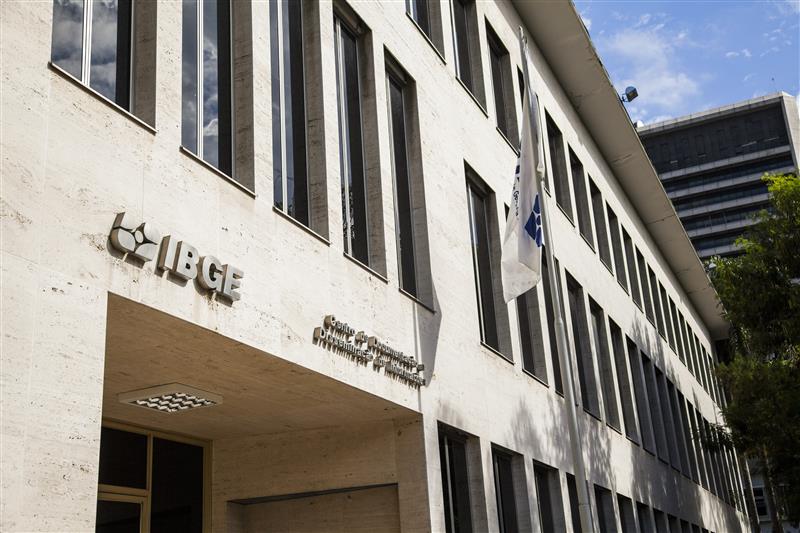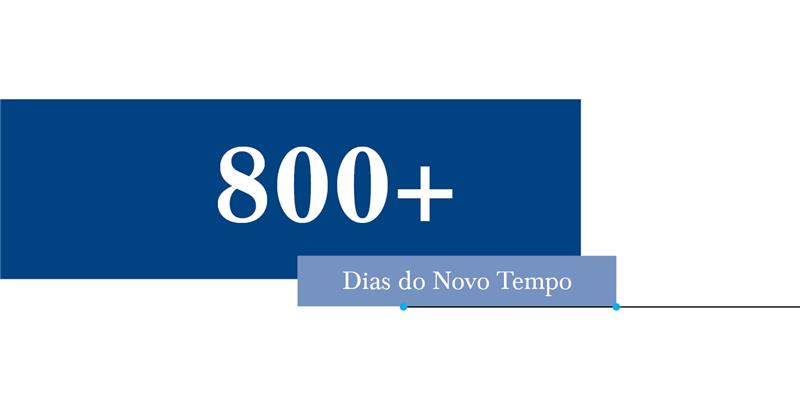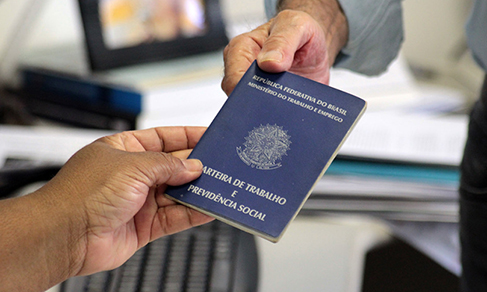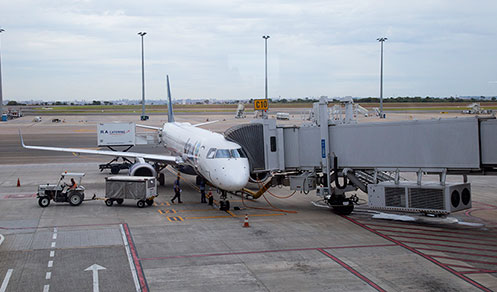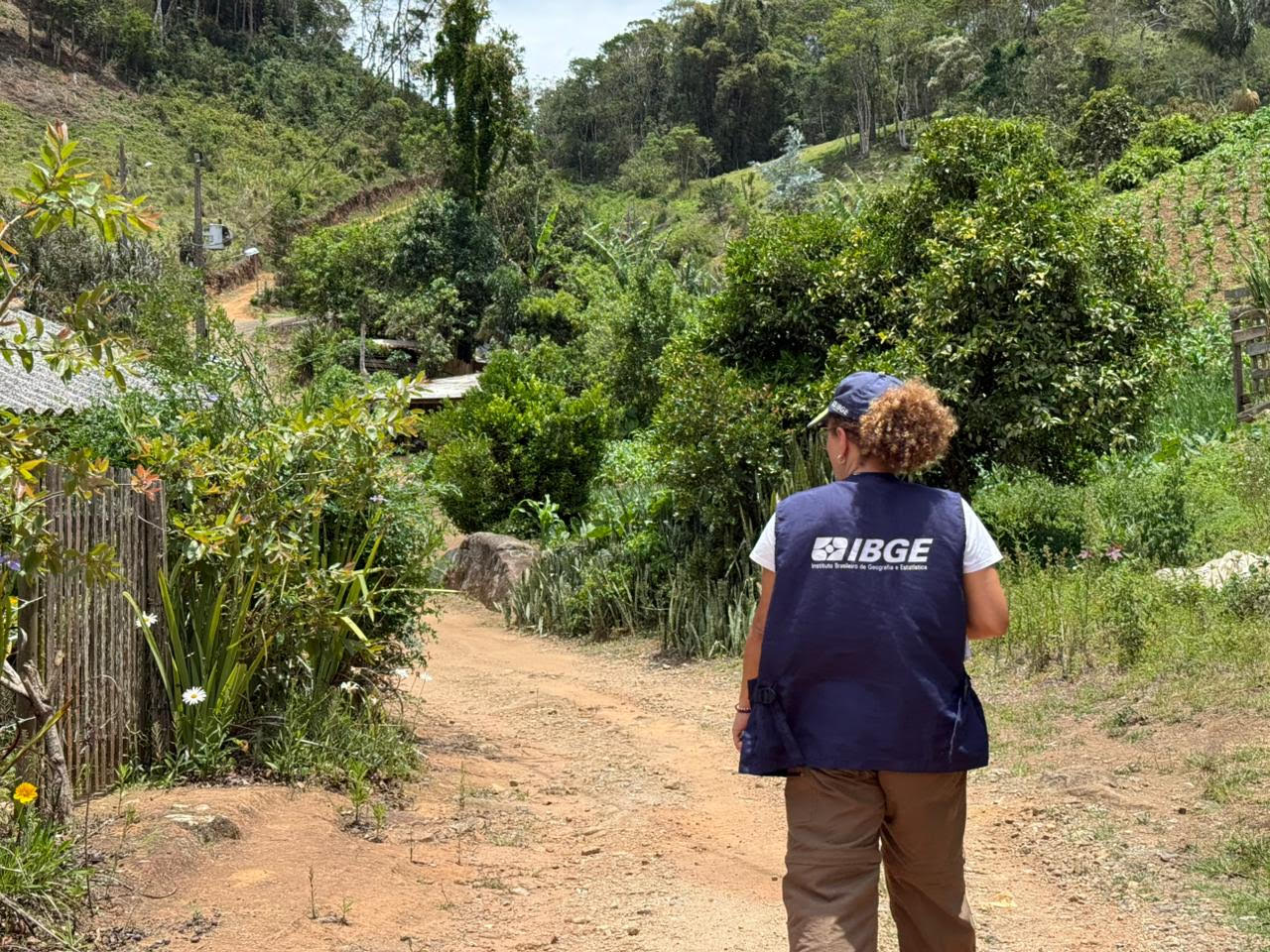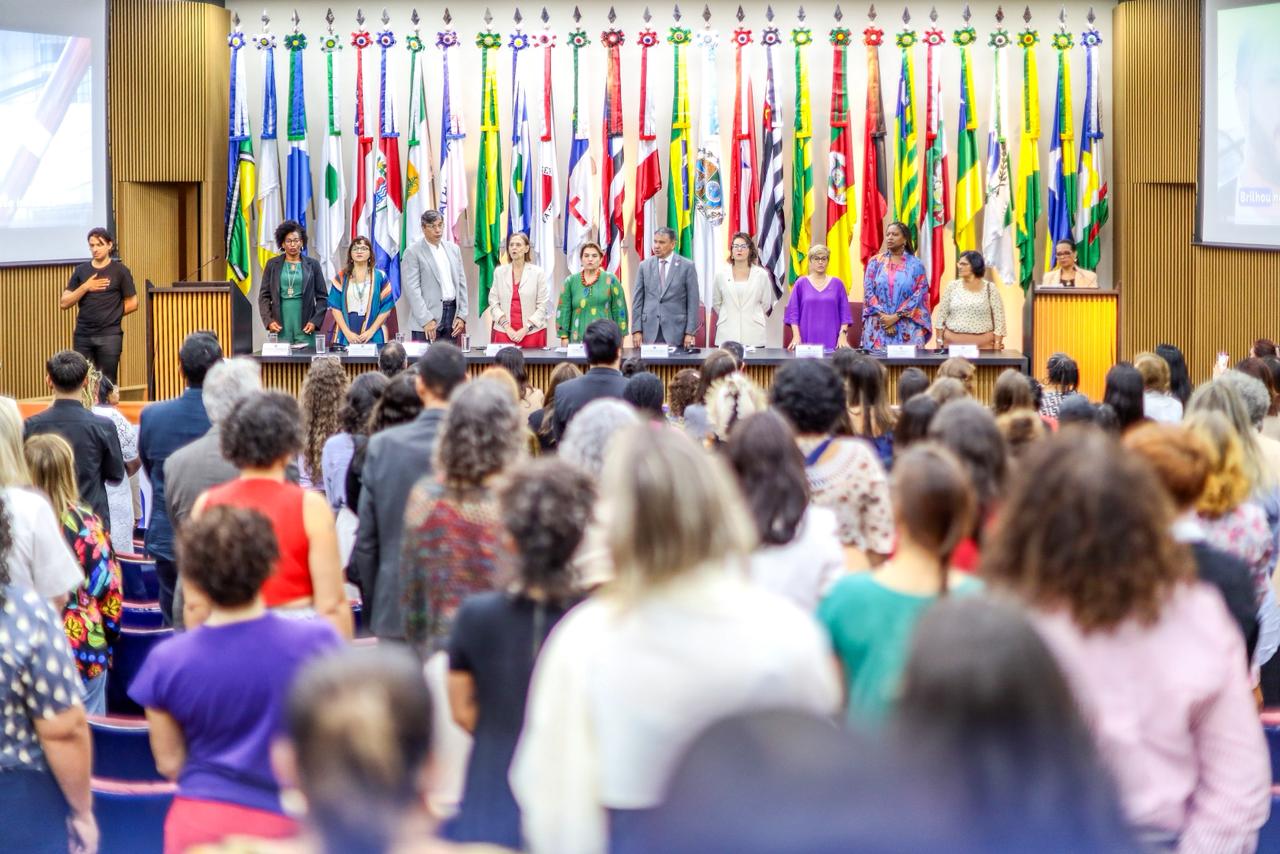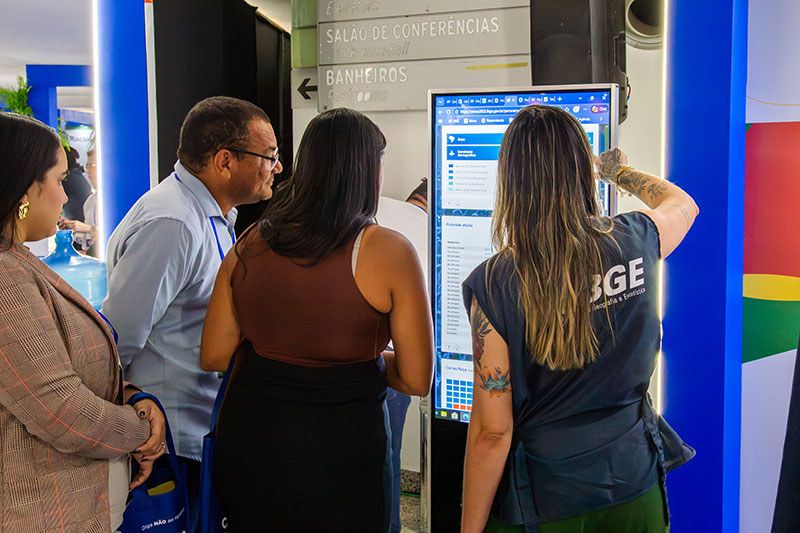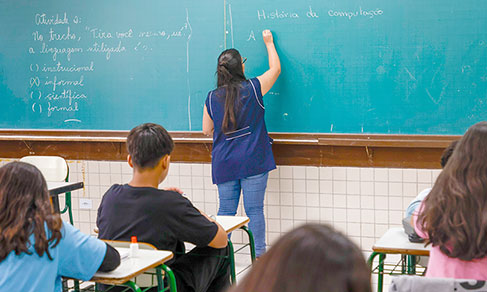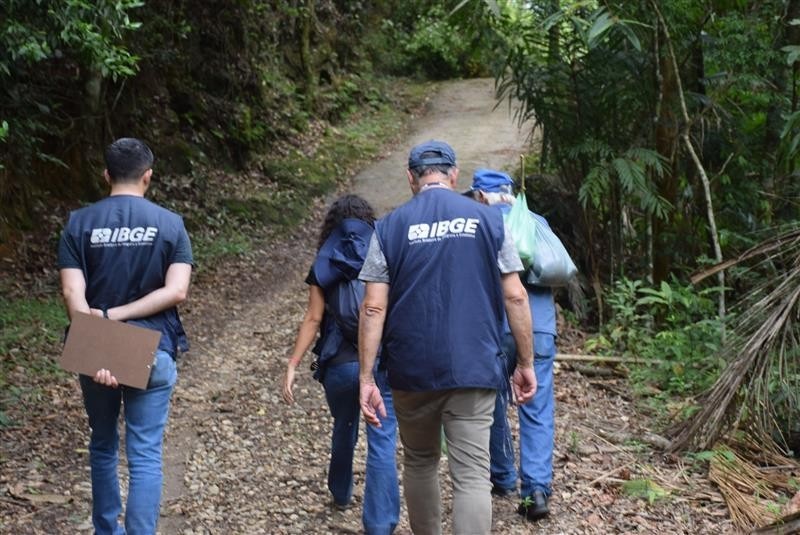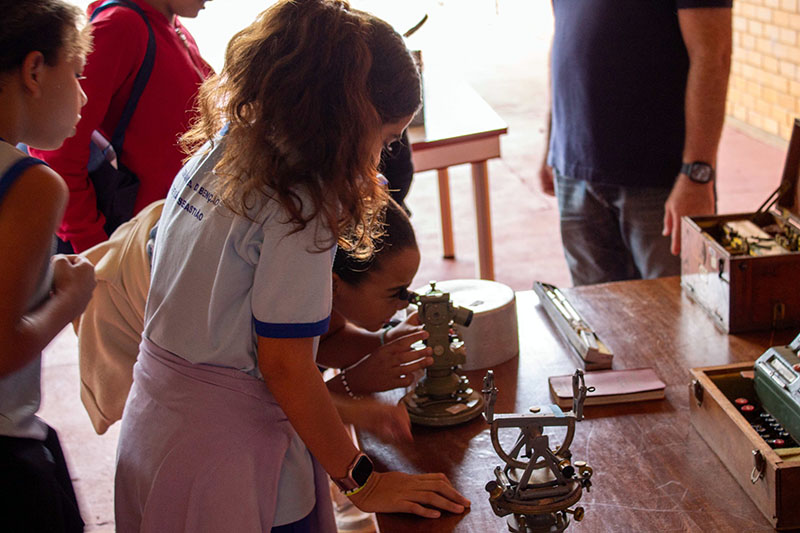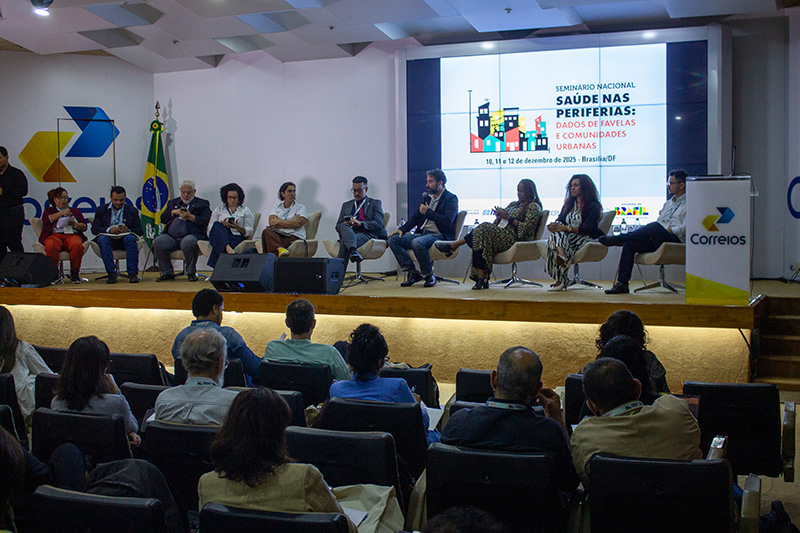Census of Agriculture training for 18 thousand enumerators is off and running
September 26, 2017 09h00 AM | Last Updated: October 09, 2017 10h02 AM
This Monday, the training of more than 18 thousand enumerators who will work in the 2017 Census of Agriculture started. It is the last preparation phase before they go to the field on October 1st. The training continues until next Thursday in almost 1,600 municipalities all over the 27 Federation units of the country.
The future enumerators will undergo a four-day training, six hours per day, held in one of the nearly 500 IBGE agencies or in one of the almost 1,400 collection posts of the Census of Agriculture. The training is focused on the use of the Mobile Collection Device (DMC), a smartphone that will be used to file the information collected in the field and to forward it to the IBGE computer network.
“We do not intend to dismiss the ones who cannot use the device at first. We will kind of provide digital inclusion via Census. In the 2010 Population Census, we still had a lot of people who could not use it. But our audience always consisted more of youngsters and students, who are nowadays very much used to this kind of technology" says the training manager of the Operational Department of Censuses, Cynthia Gomes Damasceno.
A good example of the audience described by Cynthia is André Daniel Craveiro, 19 years old, from Ananindeua, studying Laws in the Federal University of Pará (UFPA), who found in the Census of Agriculture his first professional opportunity. “I thought a temporary job would be a good option in my study rotine. The IBGE recommends a 5-hour work day, so I believe it won't get in the way of college”, explains the student.
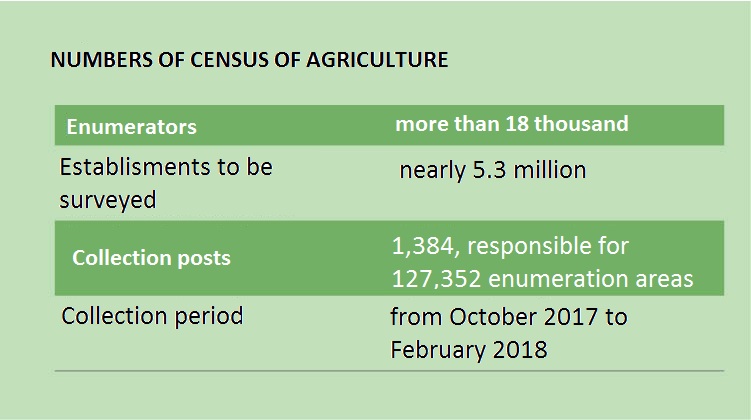
Leandro Duarte, 18 years old, is very excited about the experience of working in the Census of Agriculture in Maranhão. "I had a job before, but as a young apprentice. This kind of job is important in terms of experience. I hope I'll be able to do my tasks [in the survey],” he says.
Nayara Marçal, in turn, worked in the IBGE in 2010. It was her first job, when she integrated the team of the Population Census in the city of Lagoa Santa, in Minas Gerais, at the age of 18. Now, at 25, she faces the challenge of collecting information for the Census of Agriculture in the same municipality. "I liked very much to work in the 2010 Census, I learned a lot and I"ll take it for life."
The enumerator highlights the importance of the training to expand practical knowledge on what to do in the job position and to feel secure approaching citizens and carrying out the survey. More mature now and having recently finished the Civil Engineering course, Nayara counts on the capacity building program to get to know more of the questionnaire of the 2017 Census of Agriculture. "The training will be essential for those, like me, who are not very much familiarized with agricultural contexts."
The "door opening" challenge
The training coordinator of the Census of Agriculture in Pernambuco, Margareth Carneiro, emphasized the importance of IBGE partners facilitating the conduction of the Census. "There is a dialogue with associations, labor unions, churches; all that to make the enumerators work easier and make sure the Census of Agriculture succeeds.
Silvano Gomes, 32 years old, is one of the workers undergoing the training this Monday and their mission will be to open doors during the Census. He will be responsible for establishments in Jaboatão dos Guararapes, in the Metropolitan Area of Recife. His expectation is to take part once again in a survey carried out by the IBGE, since he had previously worked as a survey agent. "It is fundamental for the population to understand that we, enumerators, are from the IBGE, that the survey is very important and that they need to provide true answers”, he highlights.
In the city of Jaguaribe, a municipality in Ceará, located 300 km far from Fortaleza, the expectations about the training are the highest. For enumerator Rosival Viana, 43 years old, it is essential to be well prepared for the field work.
"I hope to absorb the most I can in order not to have any doubts. Sometimes we are in the field with no contact with the IBGE headquarters, so we must be prepared, without doubts", he claims. "We'll get in touch with the country's reality and see the results of 7 years of droughts here in the area", he highlights.
At 60, willing to camp out in the 3rd Census
If, for many people, the Census of Agriculture is the first professional experience, for others, the job is an old fellow. At the age of 60, Ivone Therezinha Sturm has already worked in the 2000 and 2010 Population Censuses and is ready and set to her 3rd journey as an enumerator for the IBGE, in São José dos Pinhais, in Paraná.
"I have a great feeling about this! Hard work, from Monday to Monday, camping out when it's necessary. It is an opportunity we have to meet people, see reality, earn some money, as well, to go on with life", says Ivone.
Although she started in 2000, older than 40, the enumerator tells us that the younger ones were no match for her. "Loved it! I worked in several sectors and, in the end, when many left or gave it up, I was called to finish the sectors left aside by boys and girls who had left them incomplete.”
After the week of training, the target is to have other moments of capacity building for new enumerators, at a smaller scale, in order to replace those who could not cope with the function. The agents will start data collection next Monday throughout the whole country, putting into practice the contents of the course.
Text: Rodrigo Paradella, with the collaboration of Alana Lima (PE), Camille Costa (RJ), Claudia Sedano (PA), Helena Tallmann (MG), José Zasso (RS), Larissa Grizoli (PR), Leandro Santos (MA), Matheus Boing (SC), Rita de Cássia (BA), Thaís Martins (CE)
Photo album: J. C. Rodrigues
Image: José Zasso
Table: Helga Szpiz


